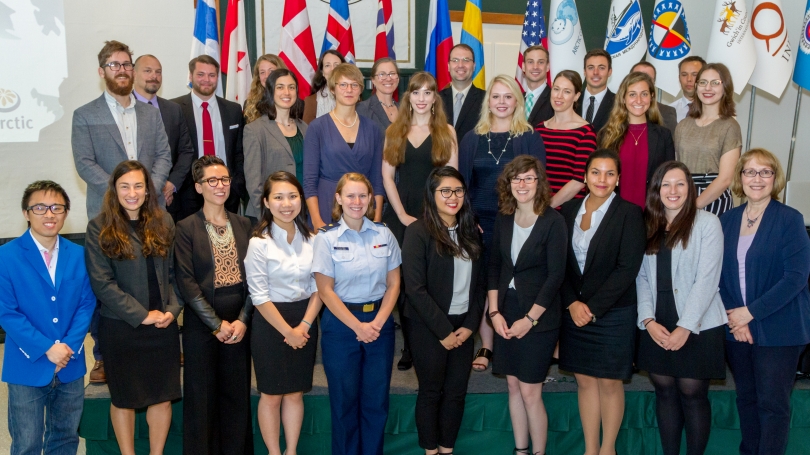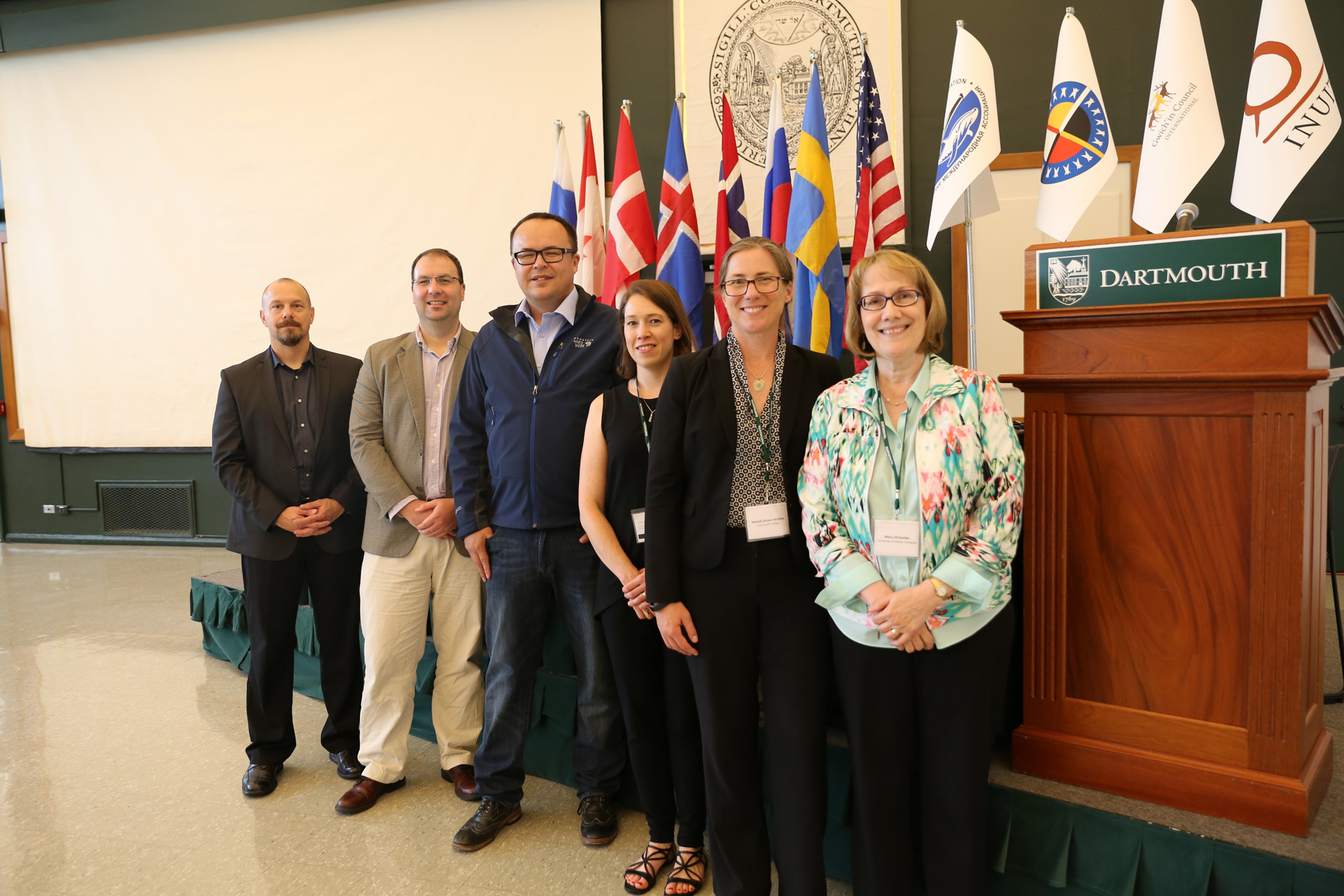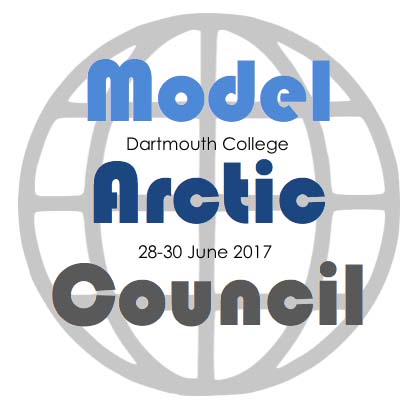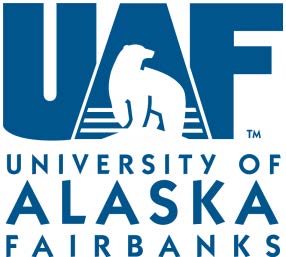Model Arctic Council at Dartmouth College (2017)
US-Canada Arctic Science Diplomacy and Leadership Workshop & Model Arctic Council
Dartmouth College
June 26-30, 2017


Dartmouth College’s “Arctic Science Diplomacy and Leadership Workshop & Model Arctic Council” program represented the first regional Model Arctic Council sponsored through the UArctic Model Arctic Council Thematic Network. It grew from the Thematic Network (TN) leads’ vision of regional MACs occurring in odd-numbered years, between the biennial fully international Model Arctic Council programs that rotate throughout the Arctic with the chairship of the Arctic Council.
Melody Brown Burkins and Leah Sarson of the John Sloan Dickey Center for International Understanding at Dartmouth College collaborated with Mary Ehrlander, Brandon Boylan, and Troy Bouffard at the University of Alaska Fairbanks to plan a weeklong program on Arctic science diplomacy for Canadian and U.S. students.
Twenty-five graduate and undergraduate students from various universities, mostly in Canada and the United States, participated. The program included orientation exercises; lectures by Arctic scholars, Arctic Council practitioners, and other civic leaders; a negotiations workshop; and the 2.5 day Model Arctic Council. The simulation addressed the Arctic Council Sustainable Development Working Group’s work on operationalizing the One Health project, which addresses ecological, animal, and human health-related impacts of climate change holistically.
The program taught about the Arctic and the role of science diplomacy in meeting challenges and opportunities in the region and in fostering leadership capacities and global awareness in participants. The program offered an interactive, multi-modal learning environment that engaged Arctic Council practitioners and other civic leaders and that provided a high level of authenticity in the Model Arctic Council portion of the program. Students greatly appreciated the hands-on negotiation workshop prior to the Model Arctic Council that prepared them for working towards consensus during the simulated Arctic Council meetings.






